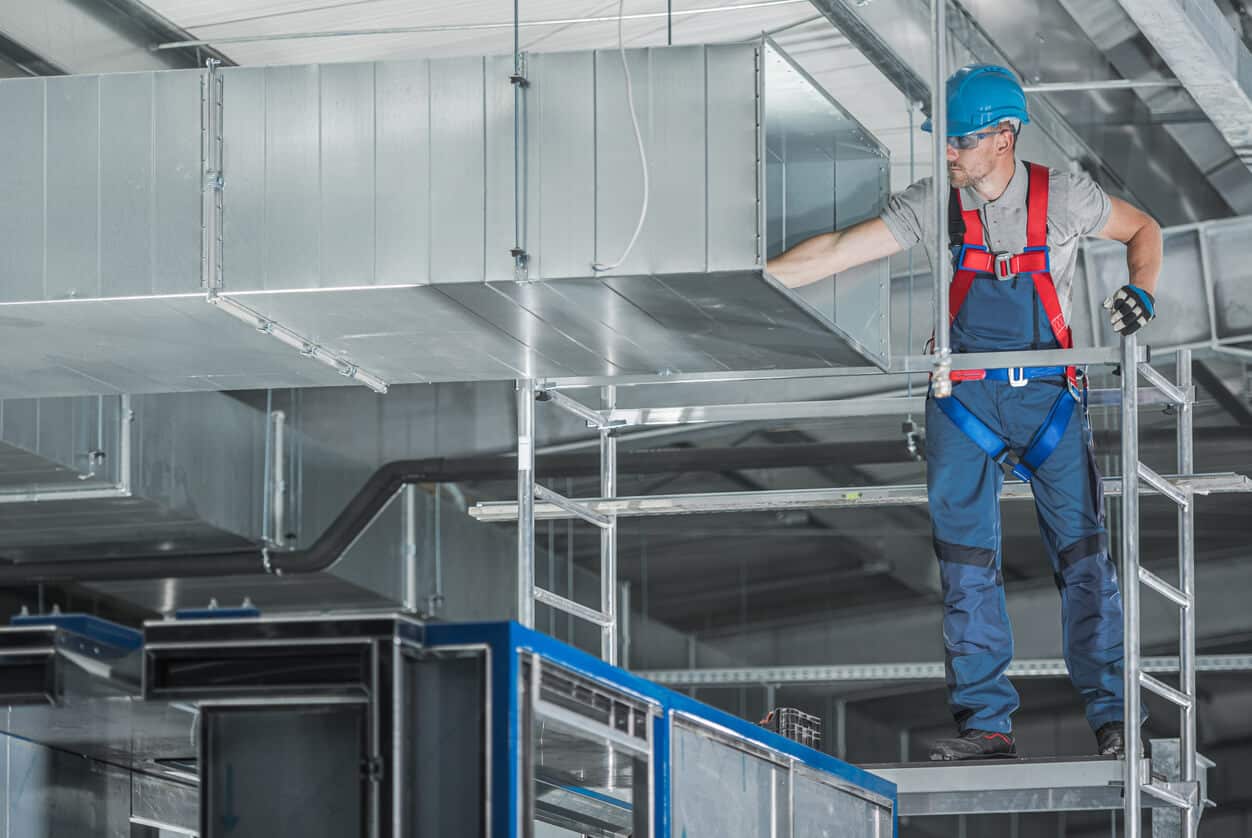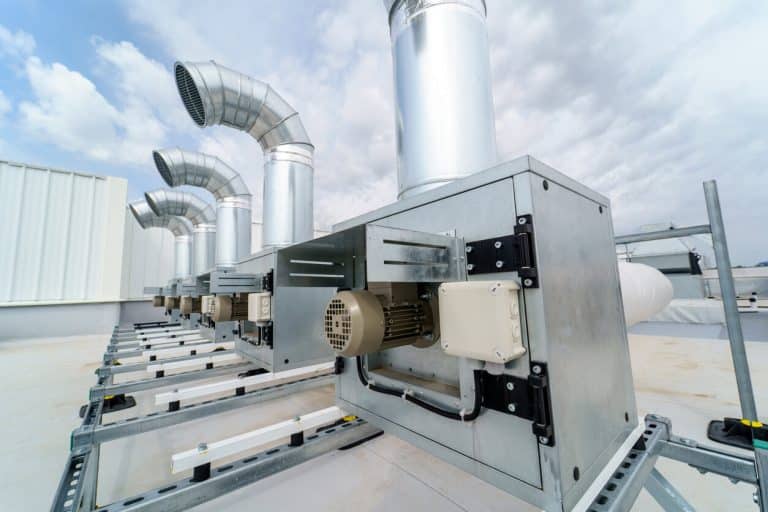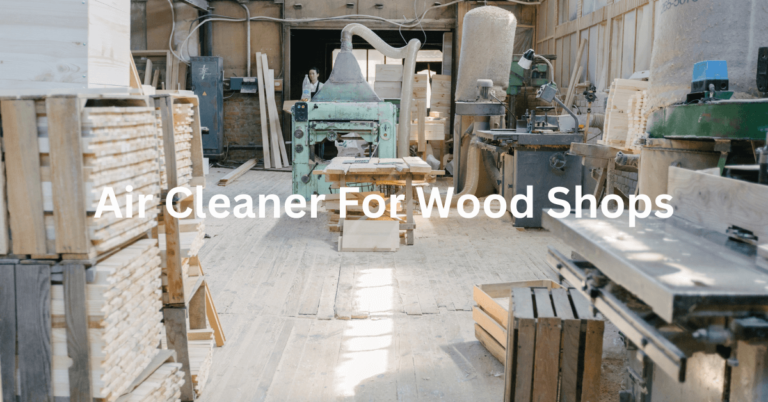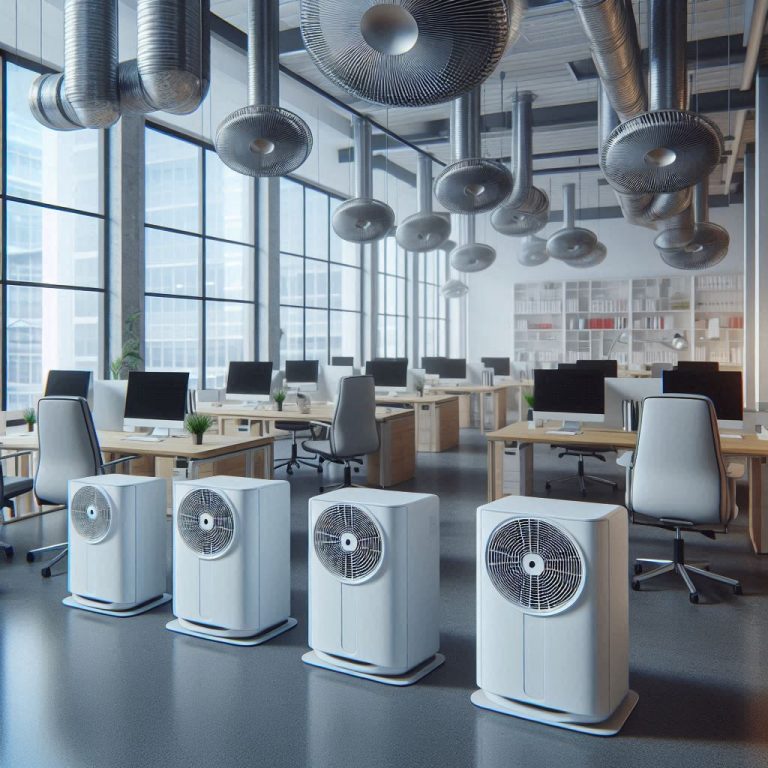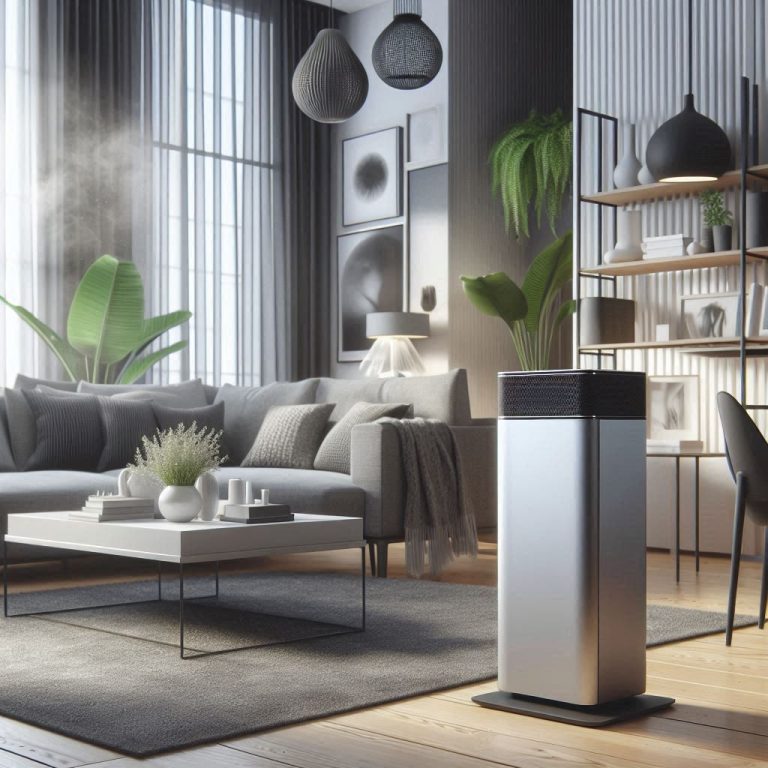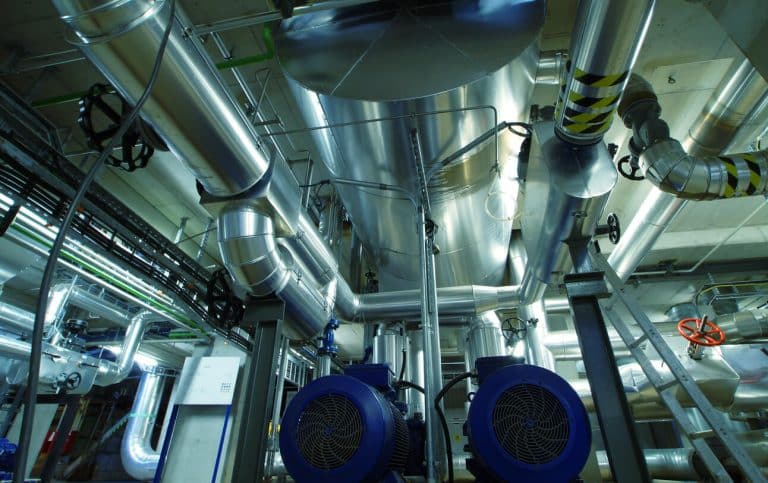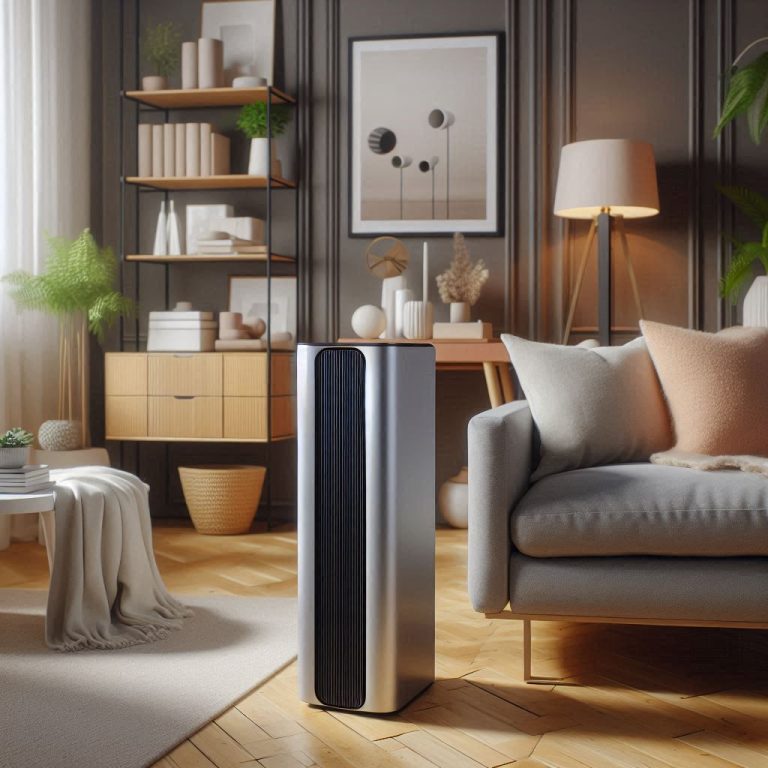Enhance Air Quality with A Commercial Air Filter System: A Complete Guide
Introduction
Air quality is more important than ever, especially in commercial environments where many people spend a significant portion of their day. Poor air quality can lead to health issues, decreased productivity, and overall dissatisfaction among employees and customers. That’s where commercial air filter systems come in. These systems are designed to improve indoor air quality by removing pollutants, allergens, and other harmful particles from the air.
What is a Commercial Air Filter System?
A commercial air filter system is an advanced filtration unit designed to purify the air in large spaces such as offices, factories, hospitals, and other commercial establishments. These systems typically consist of multiple filters, fans, and sometimes additional technologies like UV lights or electrostatic precipitators to capture and neutralize contaminants.
How Commercial Air Filter Systems Work
The primary function of a commercial air filter system is to draw in contaminated air, filter out harmful particles, and then circulate clean air back into the environment. The filtration process usually involves several stages:
- Pre-Filtration: Captures larger particles like dust and hair.
- Primary Filtration: Removes smaller particles such as pollen and mold spores.
- Secondary Filtration: Utilizes HEPA or other high-efficiency filters to eliminate finer particles.
- Additional Purification: May include activated carbon filters for odors, UV lights for bacteria and viruses, or electrostatic filters for smoke and other pollutants.
Benefits of Commercial Air Filter Systems
Health Benefits
Clean air is crucial for maintaining good health. High-quality air filtration systems can significantly reduce the presence of allergens, bacteria, viruses, and other airborne contaminants, leading to fewer respiratory issues and illnesses among building occupants.
Economic Benefits
Investing in a commercial air filter system can lead to cost savings in the long run. By improving air quality, these systems can enhance employee productivity, reduce sick days, and even prolong the lifespan of HVAC equipment by preventing dust and debris buildup.
Types of Air Filters Used in Commercial Systems
HEPA Filters
High-Efficiency Particulate Air (HEPA) filters are known for their ability to trap at least 99.97% of particles as small as 0.3 microns. These are highly effective for environments requiring stringent air quality standards, such as hospitals and laboratories.
Carbon Filters
Activated carbon filters are excellent for removing odors and chemical vapors. They work by adsorbing pollutants onto a bed of charcoal, which holds onto the contaminants and prevents them from recirculating into the air.
UV Light Filters
UV light filters use ultraviolet radiation to kill bacteria, viruses, and other microorganisms. This technology is often used in combination with other filters to provide an additional layer of protection against biological contaminants.
Electrostatic Filters
Electrostatic filters charge particles as air passes through them, causing the particles to stick to metal plates or fibers within the filter. These are particularly effective for capturing smoke and fine dust.
Choosing the Right Commercial Air Filter System
When selecting a commercial air filter system, several factors need to be considered:
- Size of the Space: Ensure the system is capable of handling the volume of air in your building.
- Type of Contaminants: Different filters are better suited to different types of pollutants.
- Maintenance Requirements: Consider how often filters need to be replaced and how easy it is to service the system.
- Energy Efficiency: Look for systems that offer high filtration efficiency with low energy consumption.
Installation of Commercial Air Filter Systems
Professional Installation vs DIY
While some systems are designed for easy installation, others require professional expertise to ensure they are set up correctly and safely. Professional installation is recommended for complex systems to avoid issues and ensure optimal performance.
Key Installation Steps
- Assessment: Evaluate the building’s layout and air quality needs.
- Planning: Design the system layout, considering the placement of filters and ducts.
- Installation: Install the components, including filters, fans, and control units.
- Testing: Ensure the system is functioning correctly and efficiently.
Maintenance of Commercial Air Filter Systems
Regular maintenance is crucial to keep your air filter system operating efficiently:
- Filter Replacement: Depending on the type of filter, replacements may be needed every few months to a year.
- System Cleaning: Periodically clean the internal components to prevent dust and debris buildup.
- Performance Checks: Regularly test the system to ensure it is effectively filtering air.
Signs Your System Needs Maintenance
- Decreased airflow
- Unusual noises
- Increased energy consumption
- Poor air quality indicators
Common Issues and Troubleshooting
Frequent Problems
- Clogged Filters: Reduce airflow and filtration efficiency.
- Mechanical Failures: Issues with fans or electrical components can impair performance.
- Leaks: Ductwork or seals may develop leaks, allowing unfiltered air to bypass the system.
Solutions and Preventive Measures
- Regularly replace filters
- Schedule routine maintenance checks
- Promptly address any mechanical or structural issues
Energy Efficiency and Air Filter Systems
Impact on Energy Consumption
Efficient air filter systems can significantly reduce energy usage by maintaining optimal airflow and reducing strain on HVAC systems. Conversely, clogged or inefficient filters can increase energy consumption as the system works harder to circulate air.
Ways to Improve Efficiency
- Use energy-efficient filters
- Regularly maintain the system
- Invest in advanced technologies that offer better performance with lower energy use
Cost Considerations
Initial Investment
The upfront cost of a commercial air filter system varies based on the complexity and size of the system. While this can be a significant expense, it is an investment in long-term health and productivity.
Ongoing Costs
Maintenance, filter replacements, and energy usage are ongoing costs that should be budgeted for. Choosing high-quality, durable components can help minimize these expenses over time.
Regulations and Standards
Compliance with industry standards is essential for ensuring the effectiveness and safety of air filtration systems. Familiarize yourself with relevant regulations, such as those set by OSHA, EPA, and other governing bodies.
Innovations in Commercial Air Filter Systems
Latest Technological Advancements
Recent innovations include smart air filters with real-time monitoring capabilities, nanofiber filters that provide superior filtration without compromising airflow, and integrated systems that combine air filtration with HVAC controls for enhanced efficiency.
Future Trends
The future of commercial air filtration looks promising, with trends leaning towards more sustainable, energy-efficient solutions and the integration of advanced technologies like artificial intelligence for predictive maintenance and enhanced performance.
Case Studies
Successful Implementations
One notable example is the Harvard T.H. Chan School of Public Health study on office environments. The research found that improved air quality, achieved through advanced air filtration systems, led to significant cognitive performance improvements among employees . Another case study from the Children’s Hospital of Philadelphia highlighted the use of HEPA filters and UV light in reducing hospital-acquired infections, leading to better patient outcomes and shorter hospital stays .
Lessons Learned
Key takeaways from these case studies include the importance of regular maintenance, the benefits of integrating multiple filtration technologies, and the positive impact on health and productivity.
Conclusion
Investing in a commercial air filter system is a smart decision for any business looking to improve air quality, enhance employee health, and boost productivity. By understanding the different types of filters, how these systems work, and the benefits they offer, you can make an informed choice that meets your specific needs.
FAQs
How often should commercial air filters be replaced?
This depends on the type of filter and usage conditions, but generally, every 3-6 months for HEPA filters and annually for carbon filters.
Can commercial air filter systems remove viruses?
Yes, systems with HEPA filters and UV light technology can effectively capture and neutralize viruses.
What is the lifespan of a commercial air filter system?
With proper maintenance, these systems can last 10-15 years or more.
Are commercial air filter systems noisy?
Modern systems are designed to operate quietly, but noise levels can vary based on the specific model and installation.
How do I know if my commercial air filter system is working properly?
Regular performance checks, maintenance, and monitoring air quality indicators can help ensure your system is functioning effectively.
Sources:
Are You Happy Knowing That Every Other System Only Captures 10% Of Airborne Particles?
Breathe Clean, Live Better! Upgrade to our Advanced Air Purifying System today and eliminate 100% of ultrafine particles down to 1 nanometer in one pass. Don’t compromise on your family’s and employee’s health. Act now and transform your indoor air quality!

